What is international day for biological diversity?
The United Nations has proclaimed May 22 the International Day for Biological Diversity to increase understanding and awareness of biodiversity issues.
It was first created in late 1993, 29 December (the date of entry into force of the Convention of Biological Diversity) by the Second Committee of the UN General Assembly.
Given the difficulty for many countries to plan and carry out suitable celebrations for the date of 29 December (due to the number of holidays that coincide around that time of year), the UN General Assembly adopted 22 May as IDB.
Since December 2000, the IDB is used to commemorate the adoption of the text of the Convention on 22 May 1992 by the Nairobi Final Act of the Conference for the Adoption of the Agreed Text of the Convention on Biological Diversity.
This year's theme is "From Agreement to Action: Build Back Biodiversity."
"But...first things first!"
What is Biological Diversity, or Biodiversity?
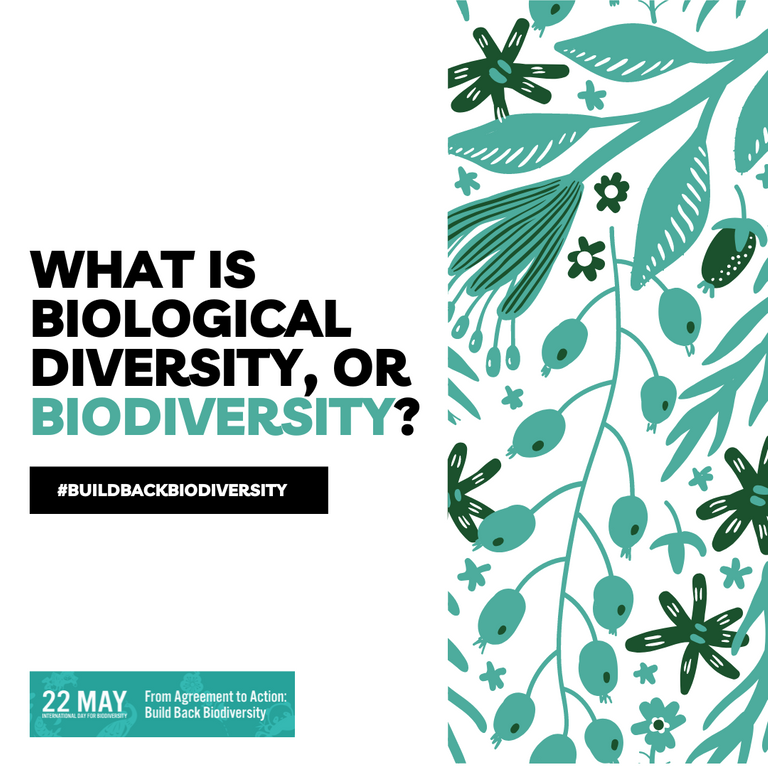
1. Biodiversity is the variety of all living things, including the diversity within species, between species and of ecosystems.
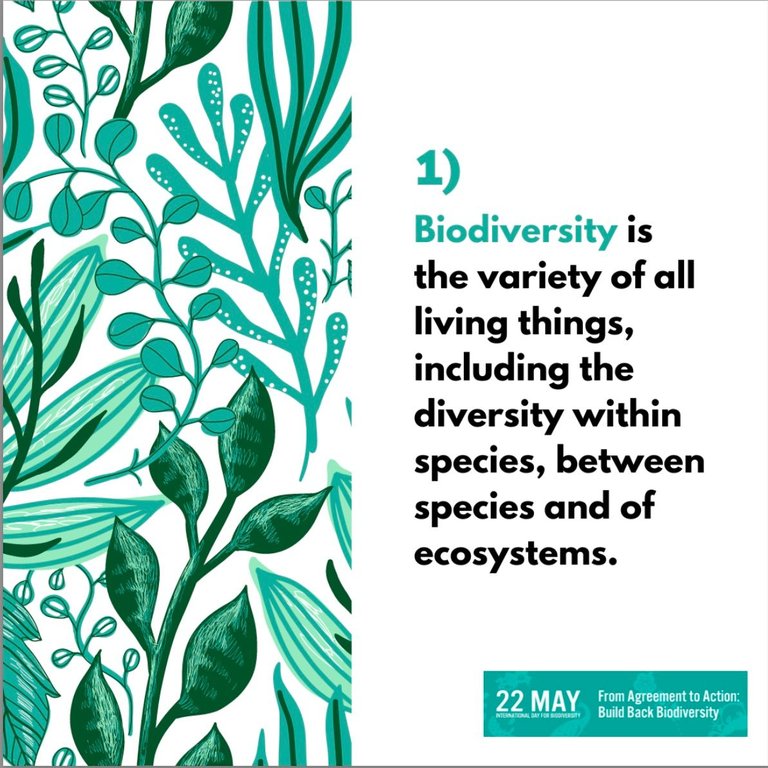
2. It is the animals, plants, fungi, and microorganisms that make up our natural world and ecosystems.
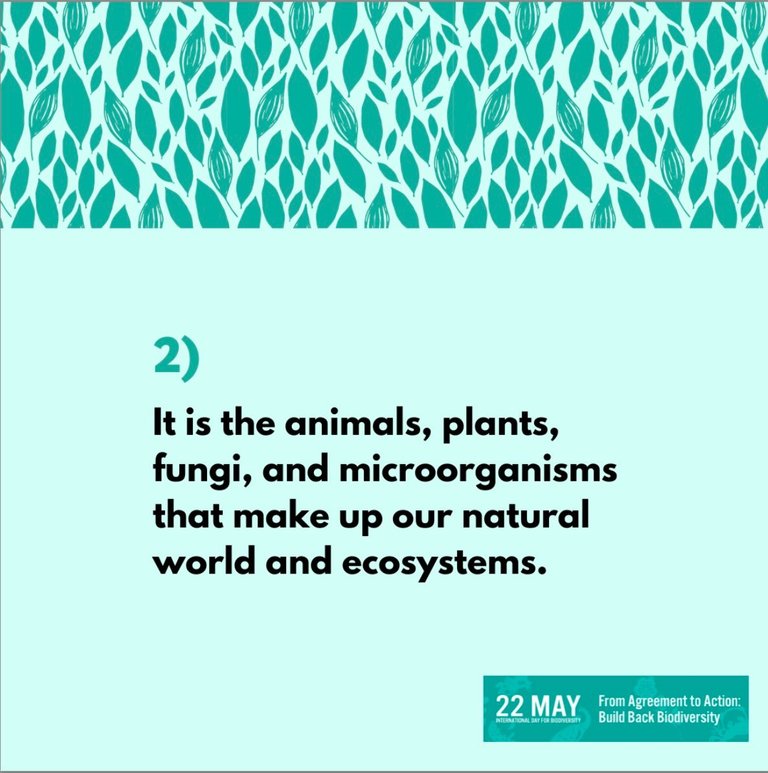
3. Biodiversity, is the heartbeat, the life, of planet Earth.
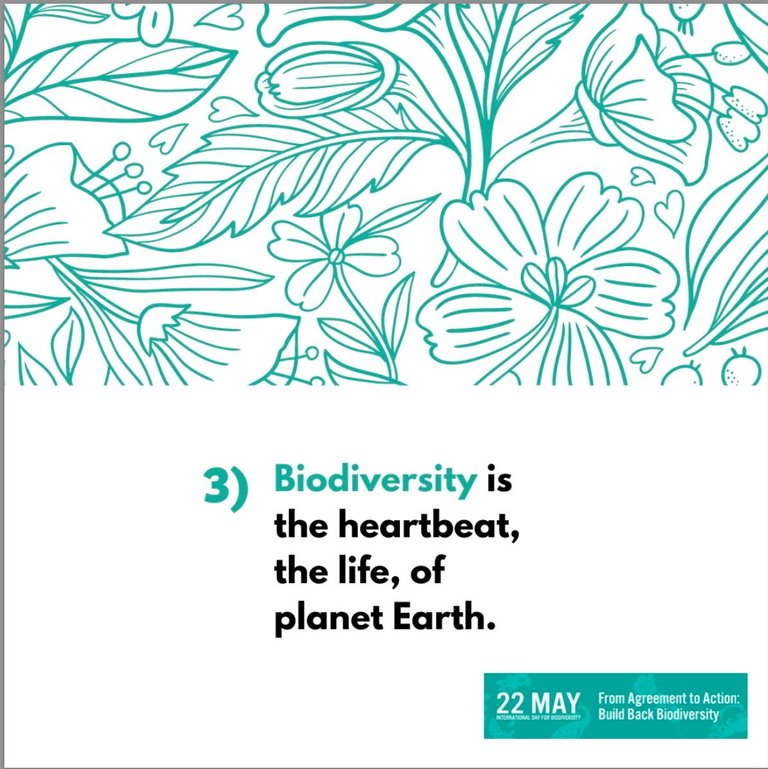
"Wait a minute...Why me!?"
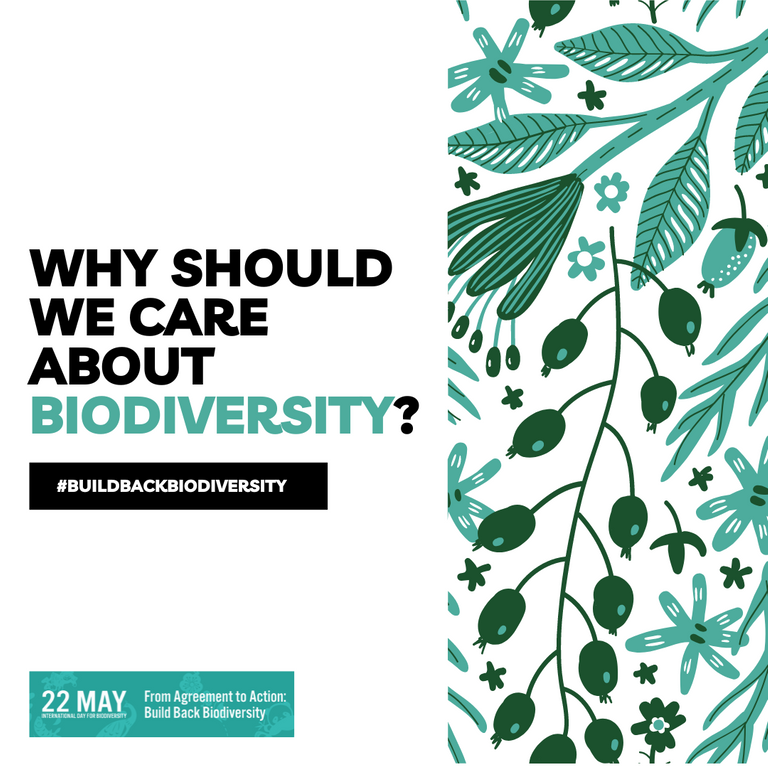
Why should we care about biodiversity?
1. Biodiversity is essential for life on Earth
No one wants to live in a place where there is no life, we need plants, birds, insects, water flowing, and so on...
2. Without biodiversity, without healthy ecosystems, we won't have air to breathe, water to drink or food to eat.
We can't just wait to loose one of those three, or all of them to start caring about biodiversity. This is not a TV show (yes, I just watched "The Last of Us", and if things (I mean, ecosystems) get unbalanced, we will all face the consequences (we already are).
3. Biodiversity, or nature, is also important for many aspects of menthal health and the enrichment of our daily lives.
Ahhh, who was locked down in a tinny apartment during Covid 19 locked down must know for sure how much his/her mental health was affected by not having contact with nature.
What are the main drivers of biodiversity loss?
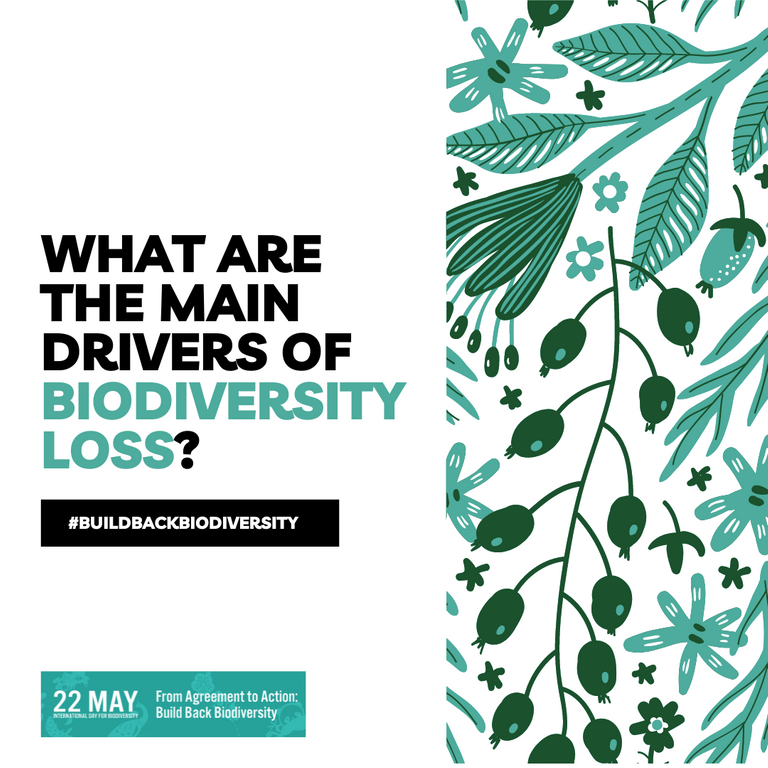
I'm suspicious because since I'm a conservation biologist I've been hearing this five main causes for biodiversity loss for more than 10 years (they were published in 2005 with the Millenium Ecosystem Assessment.
So let's go:
1. Changes in land and sea use
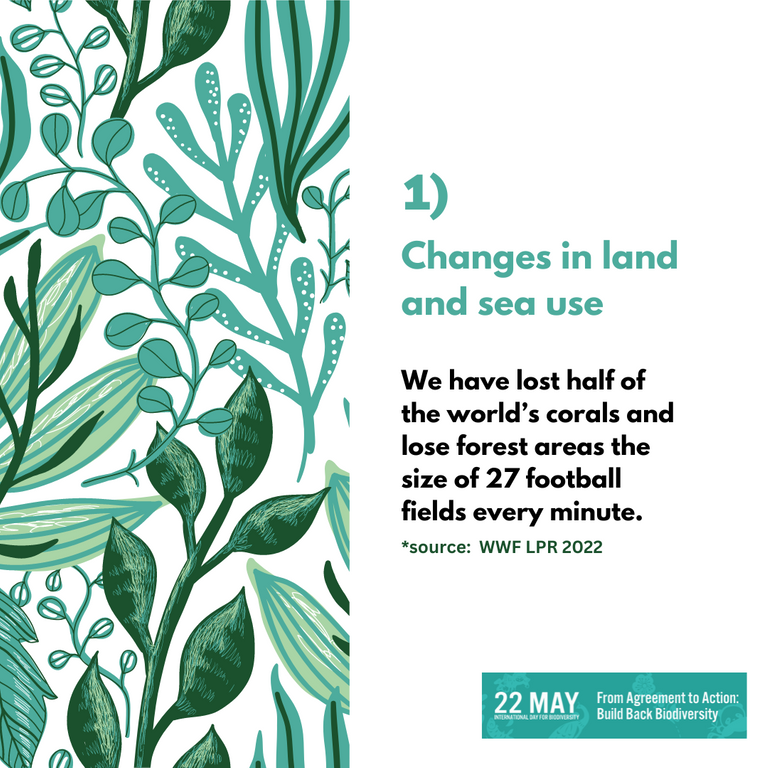
The main cause for biodiversity loss is direct changes in land and sea use. It takes much time to recover a forest (and its ecosystem services) whenever is cutted for agriculture purposes. Obviously we need to eat, but we should take better care of our natural heritage.
2.Direct exploitation of organisms
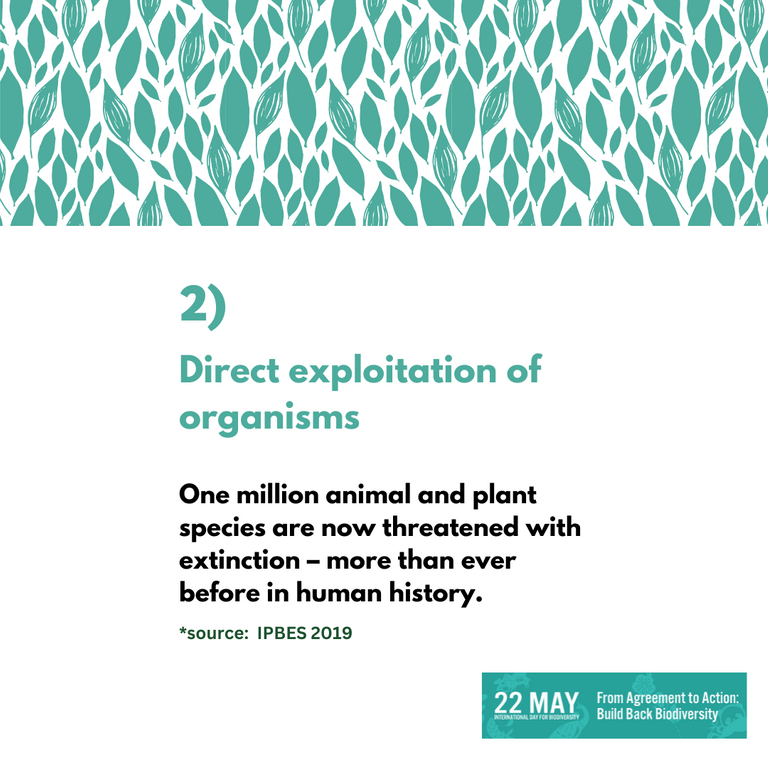
When land and sea habitats are changed, we can really loose species for extinction. When a species goes extinct, it means we may have lost a small screw that nobody knows what it's for, but without it the engine won't start.
3. Climate change
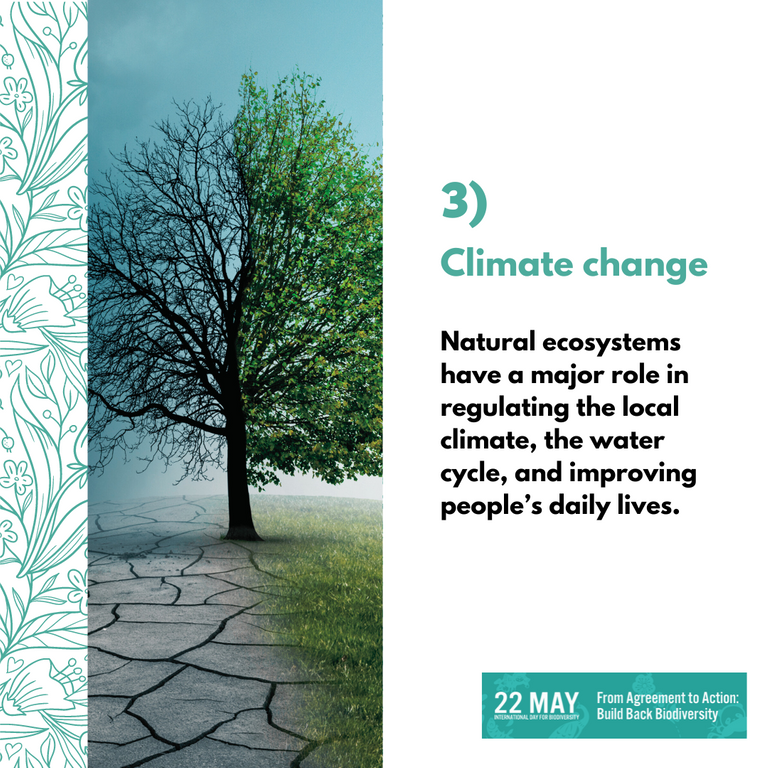
Climate changes is for sure a hot topic in science and in the media. As much as we would like not to believe it, it is impossible not to have seen something out of the ordinary: tornadoes, droughts, very cold/ hot days, and so on!
4. Pollution
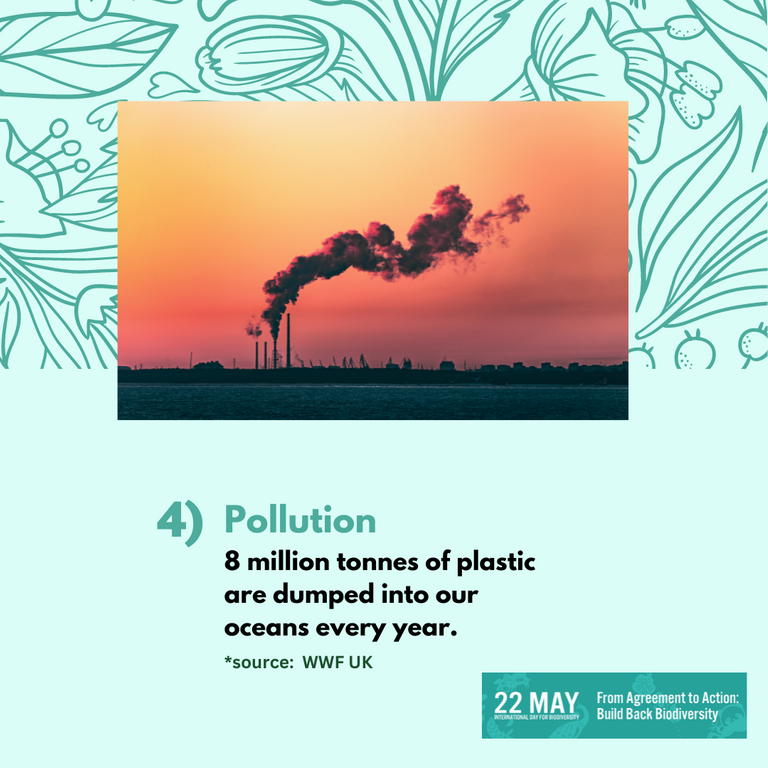
Well...pollution by plastic and microplastics is another hot topic, but water pollution, air pollution...you name it!
5.Invasive alien species
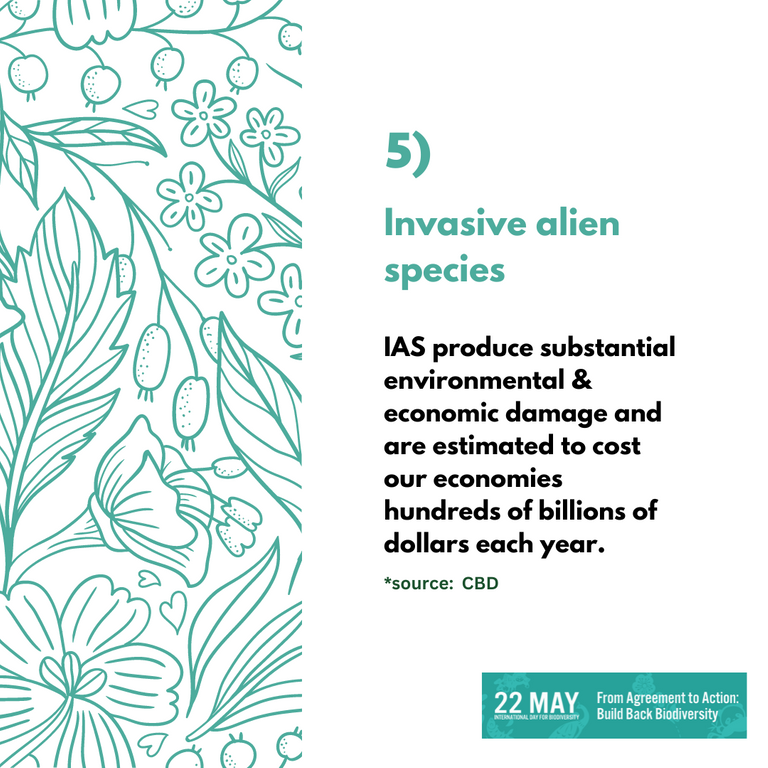
Ahhh, this is my hot topic for more than 10 years! When I started working in environment management planning I was not much aware of the problem of introduced species. Soon, I was confronted with introduced alien plants that not behaved, and became invasive, causing tremendous negative impacts.
Invasive plants are almost everywhere man is and, most of the times, when trying to control them, the invasion gets worse than it was. Unfortunately, invasive plants management has a lot to improve in Portugal, but people are getting more awareness on this topic.
However, according to the United Nations, it's not too late to Build Back Biodiversity!!
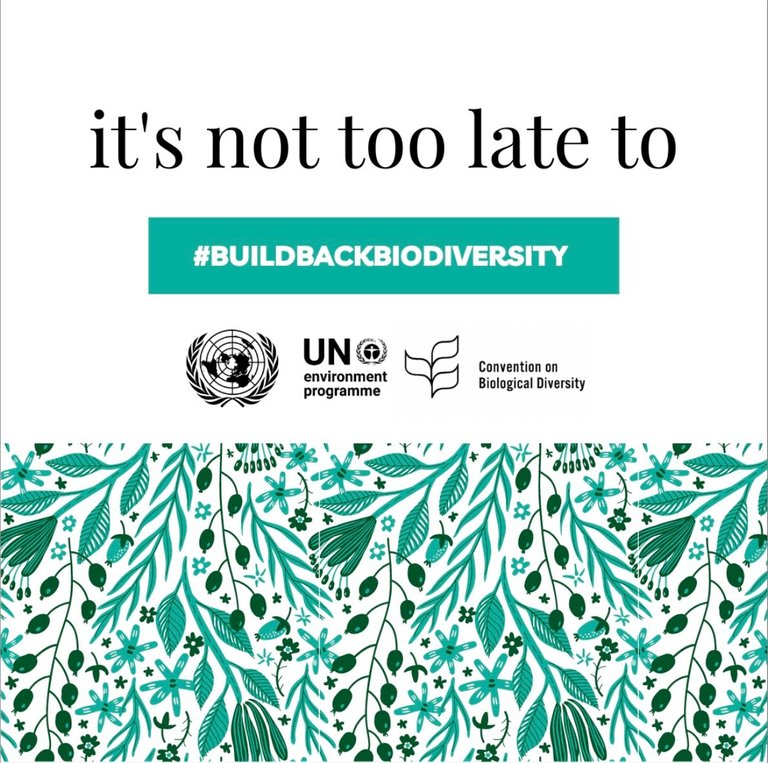
How can we build back biodiversity?
1. We all have a part to play in halting and reversing the loss of biodiversity.
As humans we can improve our behaviour and respect our planet that is the global home we have!
2. Governments need to implement national and sub-national polices to align with the Global Biodiversity Framework targets and goals.
As citizens we can vote for people that are aware of this topic and care for our future on Earth, we have that power!
3. Business need to assess and disclose impacts and implement sustainable practices.
We as business owners, but also as consumers, we can make better choices. Although, we must take care to choose wisely,and be aware of companies that are just green washing their image.
4. You and I need to change our consumption habits to reduce waste and include dietary variety.
I find this one the easiest to do!! I was thaught to not waste food, and to select products that doesn't travel more than me. In other words, I buy as much local products as I can!!

5. We all need to talk about biodiversity!
Well, I took some of my work time to share this post with you all. Hope you can talk about biodiversity with at least two or three of your friends and family. This task must be pursued by each one of us!
Otherwise, if we lived in a place without biodiversity, how could we amuse ourselves? This is not common, but I was more than happy to play with this butterfly!!
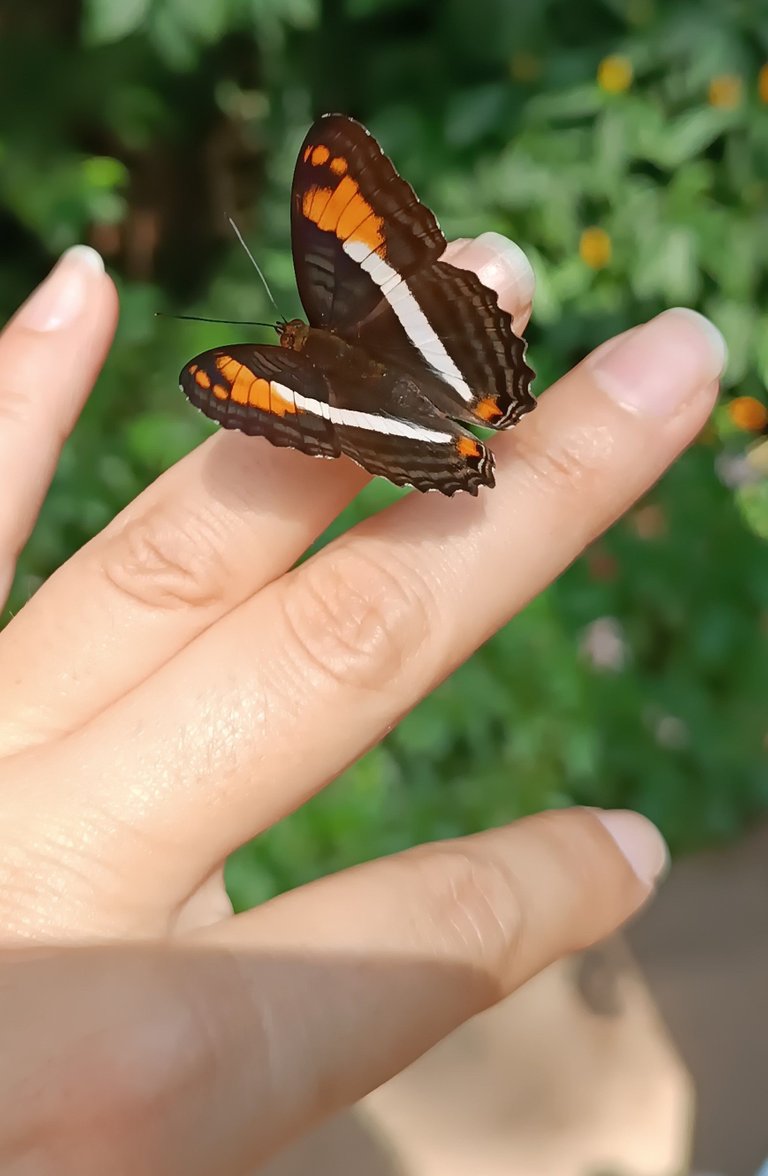
It is like "The Butterfly Effect", everyone can make small changes in order to improve biodiversity levels and consequently our life well-being.
Disclaimer: This post followed the materials made available by the United Nations - environment program and the [Convention on Biological Diversity for the IDB 2023.